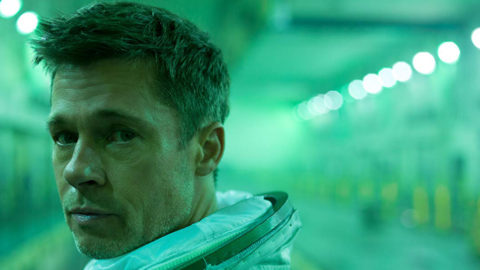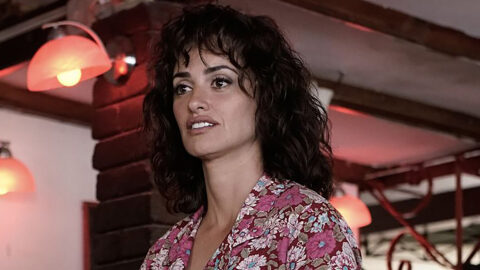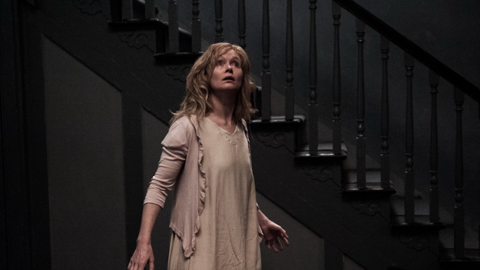Film of the Week: Babyteeth

This was not the most joyous year in Venice: sitting on the Lido on the festival’s final Friday, looking out at a gathering Mediterranean rainstorm, you can’t help thinking that the weather is finally catching up with the mood of the festival. From the apocalyptic solemnity of Joker, through the mystico-comical Beckett-isms of Roy Andersson’s quietly masterful About Endlessness, to the altogether punishing sado-solemnity of The Painted Bird, bleakness has been the dominant flavor this year (and one can safely predict that Ciro Guerra’s J.M. Coetzee adaptation Waiting for the Barbarians, screening to the public on Friday night, will not be a convivial lark either).
With the heavyweight titles setting this sober tone, you thank heaven for a touch of lightness in a smaller title—smaller in scale, that is, but not in its rewards. Australian film Babyteeth was the unknown quantity in competition (and one of the comp’s only two female-directed titles), a debut feature from TV director Shannon Murphy that was a short, sharp blast of mischievous joy—and I say this advisedly, given that the film is about a teenage girl with cancer and extremely dysfunctional parents. Adapted by Rita Kalnejais from her own play, this coming-of-age tragicomedy stars up-and-comer Eliza Scanlen (seen in HBO’s Sharp Objects) as 16-year-old suburban high-schooler Milla. She has cancer, although we don’t fully realize this until one of the chapter headings that periodically pop up on screen happens to drop the word “chemo”; just like that, “chemo,” how’s that for economical exposition? Milla’s period of rebellious rage against the dying of the light begins on a railway platform when she bumps into—literally—Moses (a superbly spiky Toby Wallace), a 23-year-old tattooed bad boy, drug user, and unashamed grifter. She becomes besotted with him, while her parents eventually overcome their mistrust of him enough to essentially buy his presence in their home, with a supply of drugs, in order to keep their daughter happy.
Composed of a series of vignettes, which get progressively wilder and more emotionally intense, this is one of those films that starts with a narrow set of parameters and spreads with a slowly bubbling exuberance into unforeseen areas. Early on, Milla’s quasi-romance with Moses looks to be ceding place to the off-kilter relationship between her anxious, doting but somewhat inept parents, psychiatrist Henry (Ben Mendelsohn, exuding wry weariness) and former classical pianist Anna, who has given up the instrument and subsided into a routine of haggard neurosis. Anna is played by Essie Davis, who was so mesmerizing in The Babadook, and is mesmerizingly brittle here. But the story meanwhile expands to corral a collection of other characters, sometimes glimpsed only briefly: Milla’s violin teacher and Anna’s former musical and romantic partner Gidon; Moses’s middle-class mum, a breeder of Bichon Frisé dogs who, perhaps understandably, won’t tolerate him in the house; and Toby, a pregnant neighbor who catches Henry’s eye, initially because she’s been standing in the street shouting “Henry! Henry!” (in fact the name of her errant mutt).

The height of Milla’s escape into Moses’s world comes one night when she lets herself get caught up and spaced out in the dazzle of an art-world party, a galvanizingly lit (the DP is Andrew Commis) and effects-laced sequence set to a number by Tune-Yards (the music is terrific throughout, ranging from club fodder to Mozart). Color also vibrates throughout, bringing the world of Australian suburbia alight, whether it’s the blue wig the now shaven-headed Milla wears (matching the family swimming pool), or the brilliantly hued little parakeets who are regular visitors at the backyard feeding table.
If you were inclined to complain that the film was derivative, you might pinpoint its apparent debt to Jane Campion’s Sweetie—but then, its executive producer is longtime Campion associate Jan Chapman. Babyteeth is deliciously astute on the sometimes bizarre everyday arcana of domestic life—like in the section entitled “The Shower Routine,” which involves Henry regularly having to adjust the house’s water pressure (“a basic conjugal duty”), or Anna imparting the intimate information that Milla, as a child, used to sleep under her grand piano.
This film, one of the few genuinely bright spots in the Venice competition, is sure to put Murphy on the cinema map (meanwhile, she’s reputedly due to work on a season of Killing Eve), while both Scanlen and the edgy Wallace, as the charming-but-obnoxious and permanently wired Moses, are definitely ones to watch (indeed, you can see Wallace maturing into the next Ben Mendelsohn—why not?). Scanlen’s performance is measured, exuberant, funny, and brave, and I don’t mean that just because it takes some nerve to go bald on screen as a 20-year-old. She and the film are devastating in a quiet, gently joyous way—and in a way mercifully at odds with all the other emotional devastation that was this year’s Lido staple.
Jonathan Romney is a contributing editor to Film Comment and writes its Film of the Week column. He is a member of the London Film Critics Circle.







